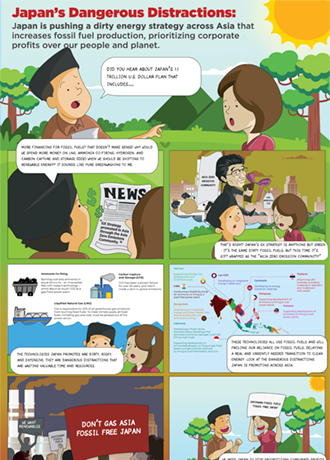
Leaflet Series: Japan’s Dangerous Distractions
Japan is promoting a dirty energy strategy across Asia that prioritizes fossil fuel production, putting corporate profits ahead of the people and the planet. This series of leaflets provides a wider audience with easy-to-understand information about Japan and its dangerous distractions.









